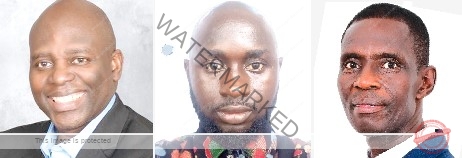Three political scientists have shot down proposals for a sitting Vice-President to step down once he or she is elected to lead a political party int
Three political scientists have shot down proposals for a sitting Vice-President to step down once he or she is elected to lead a political party into a presidential election.
The experts contend that while the issue of abuse of incumbency must be addressed, it is not every issue that needs legislation to enforce the law.
The political scientists — Dr John Osae-Kwapong, Dr Samuel Kofi Darkwa and Gilbert Arhinful Aidoo — were sharing their perspectives by suggestions by the leader of All People’s Congress (APC), Hassan Ayariga, that a constitutional instrument (CI) should mandate a sitting Vice-President to step down if he/she is elected to run for President, and a new Vice-President appointed for the office.
Context
It was the view of Mr Ayariga that the sitting Vice-President would be compromising his/her position, and that the sitting Vice-President would be using government resources and state funds to run for president. The resignation of the sitting Vice-President contesting for presidential elections, he explained, would promote fairness and integrity in the electoral process.
Incumbency abuse
For Dr Osae-Kwapong, while the abuse of incumbency must be addressed and curbed, “I do not agree that a sitting Vice-President must be mandated by law to relinquish his position in cases where they become a presidential candidate.
“It is the same way one cannot ask a sitting president seeking re-election to step down because of the prospects of abuse of incumbency,” he stated.
To address the problem of abuse of incumbency, he said the financial burden must not be carried by the state but by the candidate, in such situations.
“Any activity determined to be a campaign activity but for which the state resources were used (security, travel, etc.) must be reimbursed.
This should be easy to do because the distinction between conducting incumbent duties and canvassing for votes is never in doubt,” he stressed.
Dr Osae-Kwapong, who is the Project Director of Democracy Project, said compliance with the law on party and campaign financing must be enforced.
“The level of transparency about how campaigns are being financed allows the detection of any unlawful use of state resources. It also helps to allay any concerns citizens may have about when a sitting Vice-President is unfairly benefiting from state resources,” he stated. He noted that there was very little that could be done about the projects incumbents’ rollout during election year, pointing out that development could not stop.
“On the other hand, these development activities must not give an unfair advantage to incumbents. In these circumstances it is up to voters to decide whether an incumbent should be rewarded for last-minute development activities,” he said.
Preventing abuse
For his part, Dr Darkwa said it was crucial to exercise caution when considering legislation and avoid using it to address every issue within our nation.
He, therefore, said it was essential to focus on preventing the abuse of power by those in office, which was a significant concern in Ghana and many developing countries/emerging democracies. “We also need to consider the incumbency disadvantage that many governments face during subsequent terms in established democratic nations.
“From my perspective, the current administration is at a greater risk of incumbency disadvantage compared to the main opposition due to critical issues like the economy, unemployment rates, corruption, food security, etc., which are important to voters. These factors could significantly impact the government’s power retention,” Dr Darkwa pointed out.
Contributing to the discussion, Mr Aidoo, who is a Political Science Lecturer, University of Education, Winneba, said the country’s focus should rather be on creating the appropriate mechanisms to serve as fetters on political leadership from abusing state resources for personal gains.
“We should pay much attention to taking innovative measures that prevent conflict of interest situations, especially involving incumbent Presidents and Vice-Presidents – barring them from using national resources for personal partisan campaigns.
“We should also aim at providing fair and level-playing fields for all candidates in an election to ensure fairness and enhance public trust,” he said.
Mr Aidoo said there was the need to demonetize elections in the country to discourage any attempts to abuse state resources by officialdom.
“Serious punishments, including dismissing, prosecuting and surcharging any incumbent politician who may steal from the nation for personal campaign and other gains may serve as a deterrent to others,” he stated.
He said any attempt to illegally ambush a sitting President or Vice-President to step down to contest as president might also end up causing potential administrative disruptions, constitutional issues and potential impact on the political dynamics.
